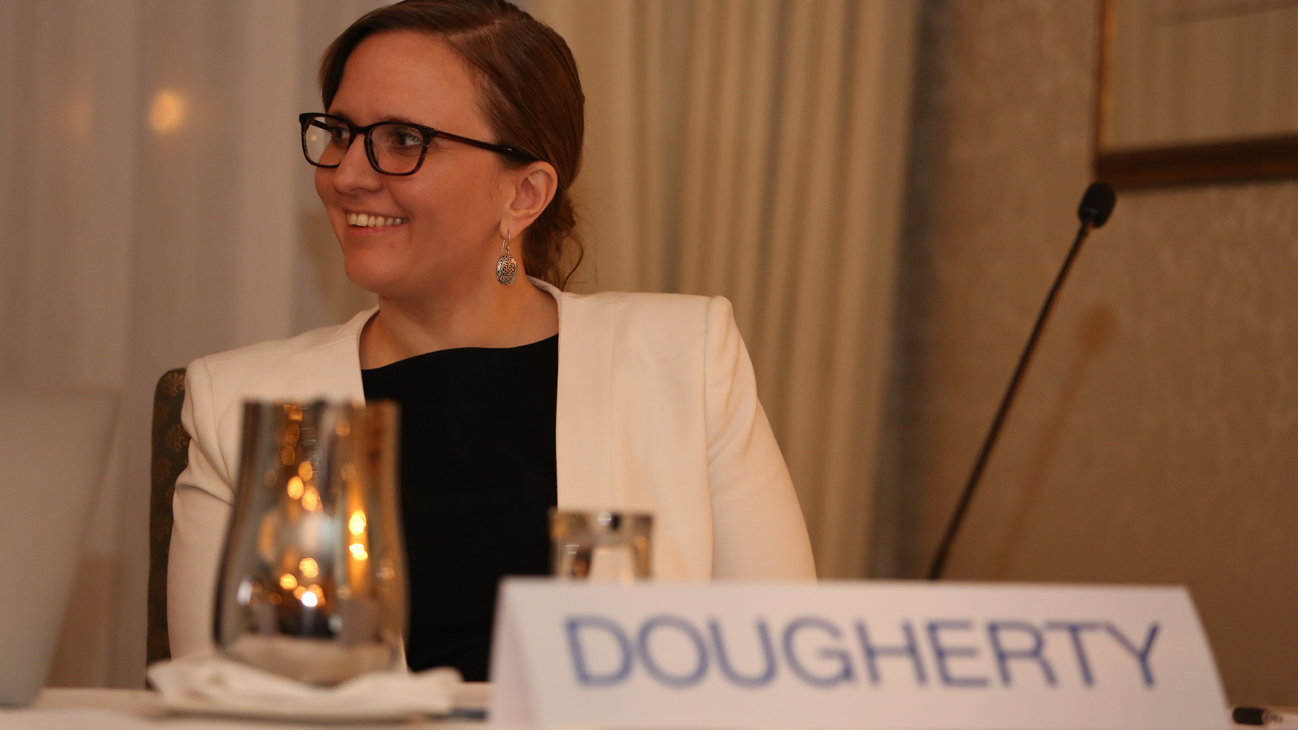For businesses looking to innovate, organizations hoping to creatively address society’s problems, and parents worried about their adult children’s success, Ilona Dougherty’s perspective is what you have been waiting for. The co-founder of Apathy is Boring, she speaks to audiences internationally about about redefining intergenerational relationships and tapping into the innovation potential of Millennials and Gen Z. In her recent article for iPolitics.ca, Dougherty comments on the future of politics, and what sorts of changes we need to make today for a better tomorrow:
In a recent opinion piece, Treasury Board President Scott Brison issued an appeal to millennials to join the public service. “We need them,” he wrote, “to build a better public service, a better Canada and a better world.”
No question, the federal public service lacks a certain youthful energy. Prime Minister Trudeau has been briefed on the fact that the number of bureaucrats under 35 has decreased over the past five years, while the number of those over 50 has increased. The average age of a federal public servant is now 45.
Baby boomers make up 36 per cent of the public sector workforce, but they’re edging towards retirement — so ensuring younger generations see government as a viable career option is going to be key to the bureaucracy’s future health. But a real and sustained effort to bring younger workers into the public service also would send an important signal that this government — which so far has made mostly symbolic gestures on engaging younger Canadians — plans to back up the talk with institutional change.
If the Liberals are serious about engaging young people in the public service, they’ll first need to clean up the mess that emerged recently over the regulation of unpaid internships. You can’t encourage young people to join the public service while still allowing unpaid internships to continue with little in the way of regulation.
They’ll also need to address structural barriers that have contributed to the current age disparity. Years of periodic austerity have turned the federal public service into a culture of chronic hiring freezes, where new hires are too often stuck in perpetual contract employment with no clear path to permanent jobs. If that doesn’t change, more speeches won’t work.
But if the feds are serious about integrating millennials and Gen Z’s into the public service, they’ll also need an understanding of what makes these generations tick.
Over the last several generations, the time it takes to transition from childhood to adulthood has steadily increased. In the 1800s, an 18-year-old youth was well on his way to having a family and career, and was approaching middle age. Now, many 30-somethings still haven’t met the five traditional milestones of adulthood: completing school, getting married, having children, being financial independent and leaving home.
Although it is common to bemoan millennials ‘failure to launch’, this delayed transition actually has a upside. Young people are spending more time than ever before in a period of their lives where identity formation and the search for meaning together form a central focus.
It shouldn’t come as a surprise, then, that young people are — now more than ever — expecting their work to be meaningful. “They expect to find a job that will be an expression of their identity,” writes Jeffery Jenson Arnett in his book Emerging Adulthood: The Winding Road from the Late Teens through the Twenties. “In asking themselves what kind of work they want to do, emerging adults are also asking themselves what kind of persons they are.”
“They expect their work to be intrinsically satisfying,” says Don Tapscott in his book Grown Up Digital: How the Net Generation is Changing your World. “They expect to be emotionally fulfilled by their work.”
This generation’s desire for meaningful work is an unparalleled opportunity for the public service — an institution which is, at least in theory, all about making a difference. Successfully engaging and retaining this new generation will require the changes in form that Brison speaks of — “less rigid hierarchies, fewer layers of bureaucracy, more open and transparent decision-making, a culture of intelligent risk-taking, more opportunity for continuous learning, and greater mobility in and out of government.”
More importantly, it will require that millennial hires actually feel they’re being listened to, and clearly see how their day-to-day tasks help build a better country. Young Canadians have a deep desire for meaning in their working lives. It isn’t entitlement. It’s an opportunity for all of us to demand more of our institutions — and ourselves.

